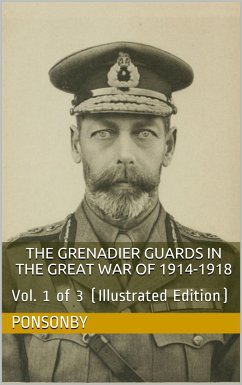The military historian who writes of past centuries has in some ways an easier task than one who attempts to put contemporary events into their historical perspective. In the first place, with every desire to be accurate, the latter finds that the accounts of eye-witnesses differ so much that he is forced to form his own conclusions, and to adopt what, according to his judgment, is the most probable version. In the second place, after reading a private letter giving a graphic account of a particular part of a battle, he may easily derive a totally false impression of the whole. Moreover, he writes in the constant presence of the criticism of eye-witnesses.
Bitte wählen Sie Ihr Anliegen aus.
Rechnungen
Retourenschein anfordern
Bestellstatus
Storno









